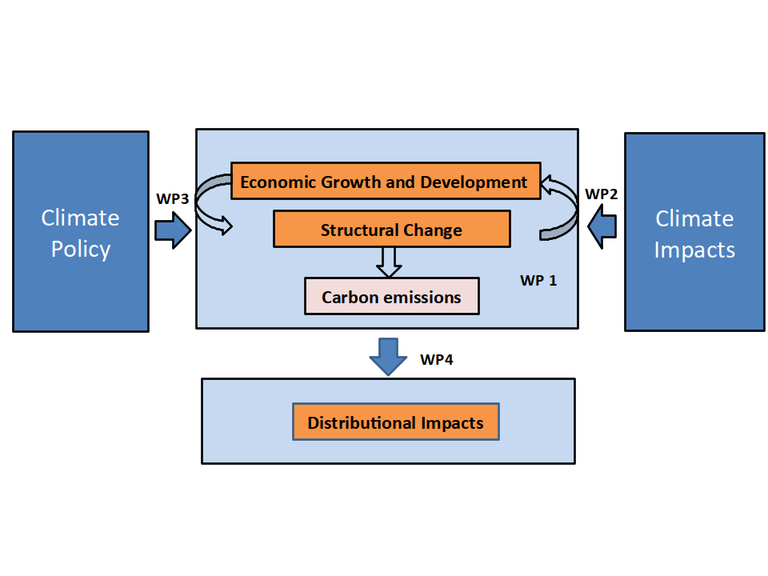Project structure
Motivation
Ambitious climate policy is feared to prevent the expansion or rise of industrial activities necessary for long-term growth and development. Furthermore, it is believed to adversely affect poor households by an increase in relative prices of carbon-intensive goods and services. Focusing on development and distributional impacts of climate policies, this project studies the particular role of structural change, and its interaction with climate change and climate change mitigation. We identify drivers of structural change, analyze how structural change influences development, and ask how the level of climate change, and hence the challenges of mitigation, depends on the assumption of how fast developing countries industrialize and emerging and advanced economies transform towards service-based economies.
Aim
The project aims at quantifying distributional effects of climate policies by taking structural change explicitly into account and exploring policies to overcome potential distributional trade-offs. Distributional effects will be analyzed at the macroeconomic and the household level. To represent different stages of the development process we focus on Germany and India.

Results
Findings of this project will inform decision-makers about distributional implications of climate policies and about complementary measures (e.g. cash transfer schemes, public investments) to reduce adverse effects for low income groups. Uncovering the interaction between structural change and greenhouse gas emissions provides a better understanding of how transitions to low-carbon service economies can be accelerated. Policy implications will be derived for carbon pricing schemes, infrastructure investments and trade and industry policies targeting specific sectors in developed as well as developing countries. To support transfer of knowledge and to intensify the exchange between scientists and practitioners, the funding measure is supported by the Dialogue on the Economics of Climate Change.
